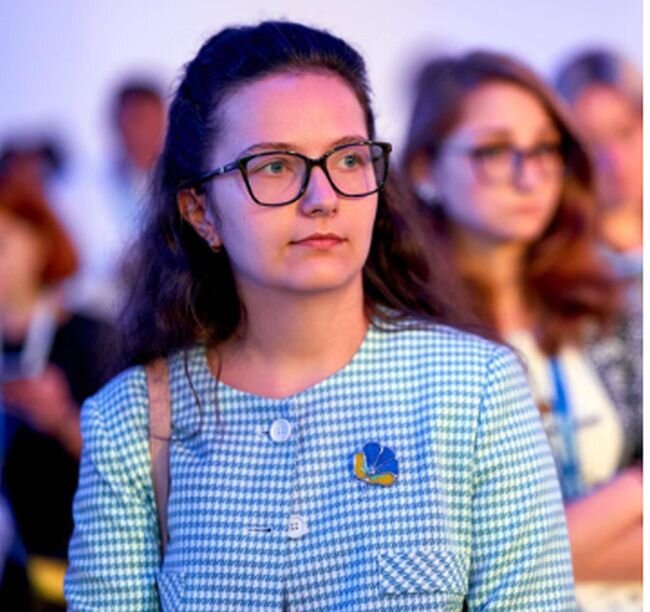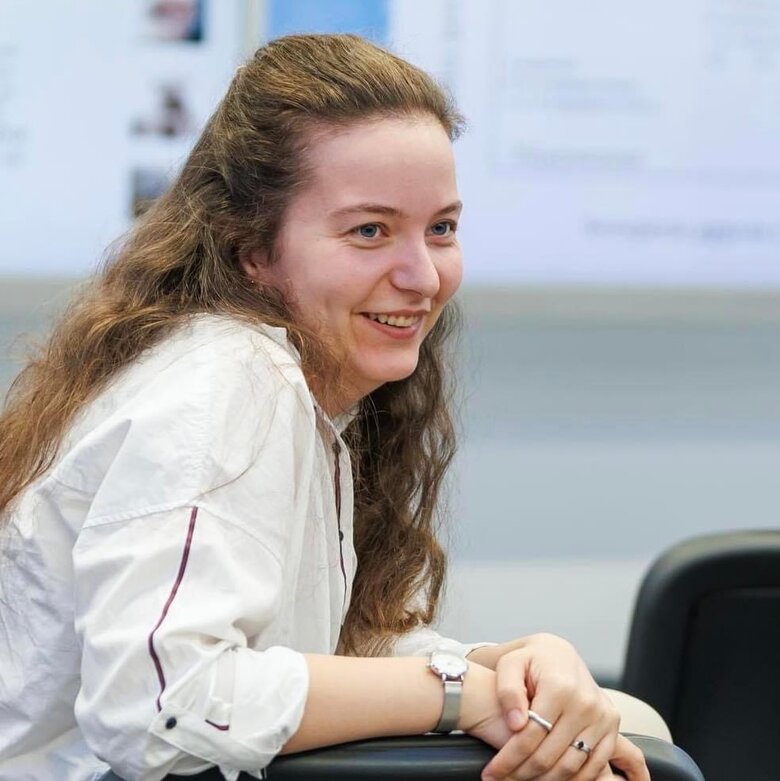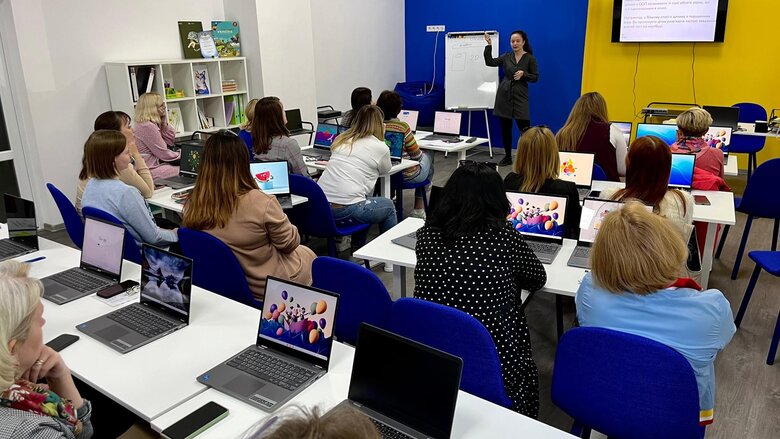Transition to intramural attendance, importance of socialization of children, and advice for parents of first-graders
Affiliate Material
The start of the training in Ukraine is scheduled for September 2. The school year will last until June 30, 2025. The issues of safety of the educational process, advantages and disadvantages of the remote format, and simultaneous study in Ukrainian and foreign schools remain among the most pressing question for parents.
We are talking about these and other features of education for future first-graders with Viktoriia Leshchenko, an expert at the Ukrainian Centre for Educational Quality Assessment, founder of Vixon School and an expert on the introduction of digital technologies in education.
-Viktoriia, we understand that there is a significant danger in Ukraine due to constant attacks on infrastructure and civilian objects. What is the situation with the form of education in Ukrainian schools? Are there sufficient conditions to return to intramural attendance?
In this context, we have to distinguish between at least several approaches: in frontline areas, intramural attendance or "offline-training" is possible only in bomb shelters, but the infrastructure for this is still insufficient. In regions far from the front line, offline training is more realistic, but safety remains a priority. At the state level, the most relevant initiative is the recently implemented initiative of the Ministry of Education and Science of Ukraine, which is the first step towards distinguishing the form of education by region. This is the School Offline project. It stipulates that students who, for example, study online at their school in the Donetsk region but are physically located in Chernihiv, have the opportunity and should start their studies at the place of their actual residence. This raises a number of questions in the synchronization of the grading system, as they may differ slightly, but even more so in the procedure for potential return to primary school. Currently, the mechanism for re-enrollment is not well developed, but work is underway.
If the region is going to study offline, what recommendations could you make for students who stay abroad but want to continue their studies at a Ukrainian school remotely?
In this area, two main scenarios have emerged as the most practical. The first is parallel education in Ukrainian and foreign schools. In this case, it is worth focusing on Ukrainian studies (history of Ukraine, Ukrainian language and literature) in a Ukrainian school, as they are usually absent from the curricula of foreign schools. Studying other subjects in both schools can lead to overload and difficulties due to different curricula and teaching approaches. The second is studying exclusively in a Ukrainian school. Here, the most common is a distance class, when the school organizes a separate distance class for such students and it is very important to provide them with opportunities for online communication and socialization with their age-mates. And also, an individual approach, when a student can join offline physical education lessons and other practical classes via video. As general advice, I would emphasize the need to balance the workload for children and harmonize their mental state as much as possible. Without such a psychological balance and support, none of the approaches will be productive, but only burdensome.
How would you assess the state of distance education in Ukraine?
I can confidently say that the level has become much better than in the pre-covid and pre-war times. It is noticeable that teachers have already been able to adapt and modify the content in some places and, of course, master the basic skills of using digital tools. The percentage of teachers for whom the use of online services like Google Classroom is difficult is already at the level of individual cases rather than a systemic problem on a national scale. International companies have helped to move to this level by not only donating devices to Ukraine but also organizing free training to improve digital competence. And, of course, the patience and openness of parents in this transition is critical, as parents have also had to adapt and improve their digital literacy.
You mentioned the importance of socializing a child, can you advise on how to ensure this if the child is studying online, abroad or in a war zone?
I have to say that comparing the circumstances of traveling abroad and combat zones is not entirely correct and, unfortunately, not practical. It is much easier to do this abroad, as you can find a community of age-mates in various clubs, or even find the Ukrainian community, which is accumulated, for example, by UNICEF in different countries, creating separate activities, kindergartens and clubs for Ukrainian children. This is, in fact, a great help provided by international organizations. Naturally, it is almost impossible to do this with children in the war zone, and the only advice is to go to safer places or create "artificial socialization" whenever possible. In this case, parents should model situations where interaction is necessary. For example, how to act in a team? More time should be allocated to mental or sports activities, where the result will depend not only on the child's actions but more on coordinated interaction with others, as well as within certain rules and guidelines.
If we talk about the immediate start of the school year for first-graders. Do you have any practical advice on how to facilitate the process of adapting to school, especially online learning?
Probably, by now, it is already necessary to focus on aspects of changing the daily routine and setting the child up for a more balanced approach to sleep, nutrition, and general daily routine. A common mistake I see is parents' hasty desire to send their children to express courses of school readiness. It is important and useful to do this in advance, but not in the last two or three weeks before the start of school. Moreover, such a rush will only create detachment and misperception of the learning process by the child. Instead of enjoying the learning of new knowledge that opens up new skills and opportunities, the child will only feel pressure from parents' expectations of his or her performance. Therefore, efforts should be focused on a smooth and harmonious transition to a new mode of cognition.
What problems do parents of first-graders most often face at the beginning of the school year? And what advice can you give to avoid them?
First, there are the difficulties with the transition to a new daily routine that we have already mentioned. It takes some time to adapt. Secondly, the lesson format is new for first-graders, whereas in kindergarten they learned everything in the form of games or with much less time in class. It is also a format of sitting at a desk, a larger number of teachers, and the amount of new knowledge. All this cannot be taken automatically, and parents should communicate about the feelings of a child who finds himself or herself in such a new learning environment. These components relate to intramural attendance, and if a child, for example, did not go to kindergarten, the issues of format and socialization become more acute. And thirdly, it is a matter of motivation to learn. Compared to the usual games, it is difficult for a child to keep attention and focus on one activity for a long time.
Given the above challenges in the area of children's mental health, do you see any new priorities or approaches in primary school programs for this school year? What should parents pay attention to?
I would single out the role of the teacher as a facilitator and psychologist as the biggest factor. Education as a system cannot ignore the long-term stress of the war, which has accumulated not only in adults but, unfortunately, also in children. Therefore, programs have been intensified at the national level to provide teachers with guidance on how to better understand the level of stress that affects a child's academic performance. For example, now the teacher's task will be not only to evaluate the child's progress but also to understand the overall level of success of the class in mastering a particular topic. If the teacher notices that children need more time for a certain topic, the requirement is to focus on this topic additionally and make appropriate adjustments to the curriculum. Parents should also help teachers in this case, and not, for example, demand a faster pace of learning and mastering. If the teacher identifies individual cases, it is important to help the child catch up with the necessary material through a system of exercises and activities, of course, in full cooperation with the parents.
Serhii Dorozhenko
___________________________________________



